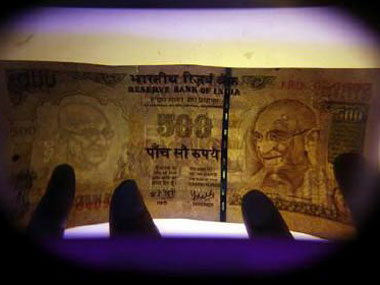The government’s over dependence on debt is coming back to haunt it in difficult times. Liberalisation of foreign investment in debt has resulted in hot money even in debt, which is adding to the currency volatility.
According to a report in the Economic Times, proprietary traders of these foreign funds are making a quick buck on arbitrage between local debt and overseas non-deliverable forwards (NDF) market. The huge volatility in the rupee is also because of this, the report said.
Non-deliverable forwards are forwards traded overseas on currencies that are not fully convertible. It works almost like a currency forwards contract in the local market, but no delivery of underlying currency is possible as the unit is not fully convertible. The market is used by hedge funds and foreign institutional investors to hedge against currency volatility. For the rupee, the key non-deliverable forwards market functions in Hong Kong, London and Singapore. The RBI has not recognised this market and, according to the ET report, refuses to openly acknowledge the impact of this market on the rupee.
[caption id=“attachment_861075” align=“alignleft” width=“380”] Liberalisation of foreign investment in debt has resulted in hot money even in debt, which is adding to the currency volatility. Reuters[/caption]
The report also explains how the FII arbitrage in local debt and overseas NDF market works. For example, an FII proprietary trader buys bonds in local debt when the rupee is appreciating for some short-term reasons. She also buys dollar forwards in the NDF market where the rupee’s appreciation is higher than in the domestic market. Once the rupee falls, she sells local bonds for a loss and more than makes up for the loss by unwinding her dollar position in the NDF. Usually, the rupee’s appreciation and depreciation in the NDF market are higher than in the local market.
So, FIIs are definitely making a loss in the local debt since the rupee has depreciated sharply against the dollar over the last on month. But they are more than making up for this loss in the overseas markets by betting on the same currency they made loss from.
During June 3-7, Foreign Institutional Investors (FIIs) were gross buyers of debt securities worth Rs 2,487 crore, while they sold bonds amounting to Rs 10,162 crore translating into a net outflow of Rs 7,675 crore ($ 1.35 billion), a PTI report said citing data from Sebi.
However, nothing is deterring the government from taking dud decisions. A Reuters report said recently that in order to contain the widening current account deficit, the government is likely to further increase FIIs’ investment limit in government bonds by another $5 billion.
Ideally, the rupee volatility and related troubles should have prompted a rethink in the government. But there are no signs of this happening.


)
)
)
)
)
)
)
)
)



